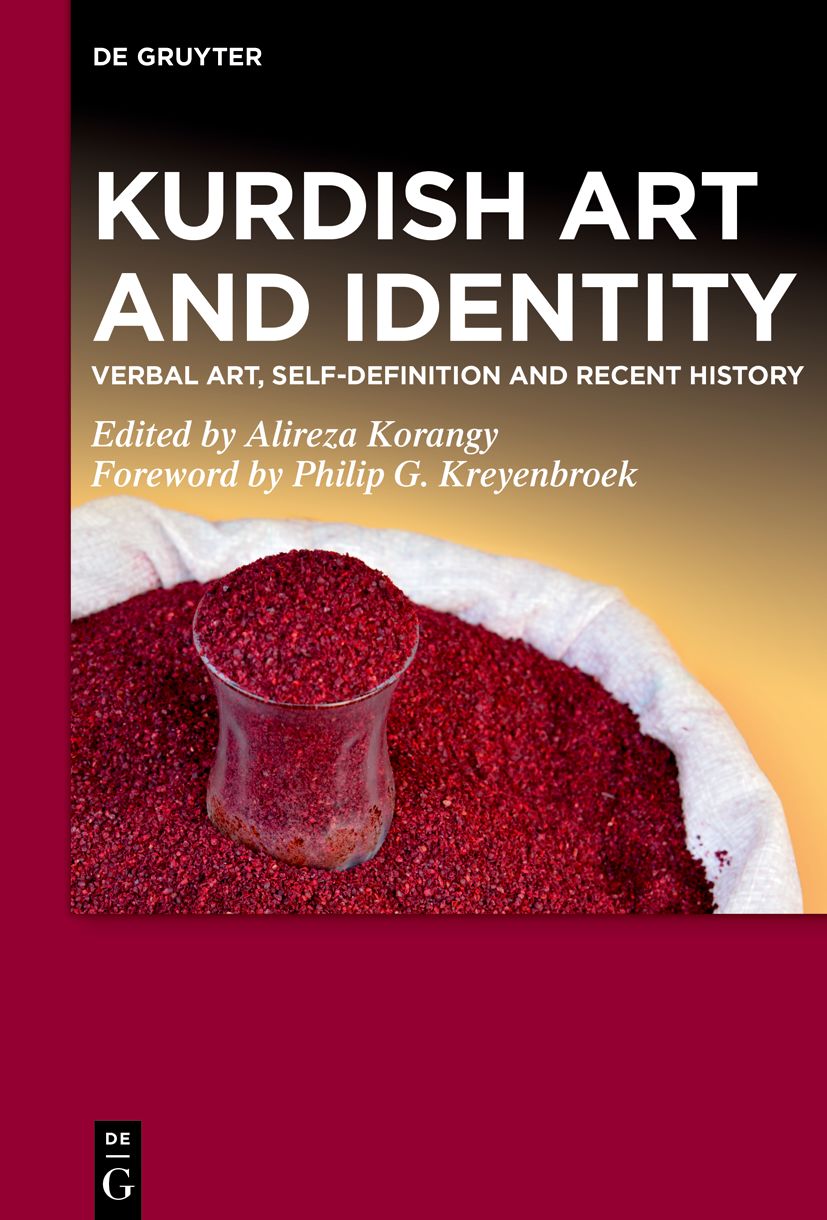Published by De Gruyter 2020. Edited by Alireza Korangy and Foreword by Philip G. Kreyenbroek
“Folklore has been a phenomenon based on nostalgic and autochthonous nuances conveyed with a story-telling technique with a penchant for over-playing and nationalistic pomp and circumstance, often with significant consequences for societal, poetic, and cultural areas.
These papers highlight challenges that have an outreaching relationship to the regional, rhetorical, and trans-rhetorical devices and manners in Kurdish folklore, which subscribes to an ironic sense of hope all the while issuing an appeal for a largely unaccomplished nationhood, simultaneously insisting on a linguistic solidarity.
In a folkloric literature that has an overarching theory of poetics – perhaps even trans-figurative cognitive poetics due to the multi-faceted nature of its application and the complexity of its linguistic structure – the relationship of man (and less frequently woman) with others takes center stage in many of the folkloric creations. Arts are not figurative representations of the real in the Kurdish world; they are the real.”
Alireza Korangy, independent researcher, U.S.A.
Contents
- Frontmatter Pages: I–VI – PDFFREE ACCESS
- Foreword Philip G. KreyenbroekPages: VII–VIII PDFFREE ACCESS
- Acknowledgements Pages: IX–X PDFFREE ACCESS
- Contents Pages: XI–XII PDFFREE ACCESS
- Applying the Oral-Formulaic Theory to Mem û Zîn Michael Chyet Pages: 1–39
- Mem û Zîn as Court Literature Leonard Michael Koff Pages: 40–63
- Cleansing the Galleries: A Museum in the Imagination of Kurdish Diaspora Artists and Activists Vera Eccarius-Kelly Pages: 64–81
- From Fairytale Character to Lost Goddess: The Archetypal Representation of Stepmother within Kurdish Folklore Suat Baran Pages: 82–95
- The Impact of the Dengbêjî Tradition on Kurdish Theater in Turkey Duygu Ç Çelik Pages: 96–118
- Conservatives and Radicals: Ethnicity and Politics in Early Modern Ottoman Kurdistan Djene R. Bajalan Pages: 119–135
- The Oral Tradition of Dengbêjî : A Kurdish Genre of Verbal Art and Reported Speech Amir Sharifi and Zuzan Barwari Pages: 136–168
- Orality and Folklore: Reflections on the Folktale Tradition of the Zaza People Eberhard Werner Pages: 169–190
- Darceñge: A Lekī Poem by Miļā Nawshād Mustafa Dehqan Pages: 191–208
- IndexPages: 209–214Y

